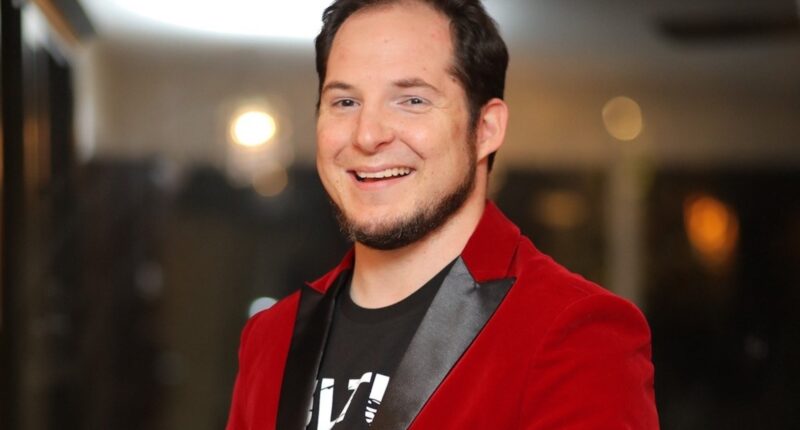
I don’t know of many people who have taken a straight and narrow path to entrepreneurship, myself included.I studied entrepreneurship in college but didn’t actually do anything about it until about ten years later. Most entrepreneurs I know had a 9-5 for a while then decided it was time to do their own thing.
But my most recent podcast guest, Alex Schlinsky, is different. He bypassed having a traditional 9-5 and immediately pursued entrepreneurship. Reason being, he thought there was a chance he might die at a young age.
I don’t want to make this overly dramatic but I can imagine feeling like you don’t have a lot of time left can encourage you to truly live for the day and make the most out of however many days you have left.
Fortunately, you don’t have to go through a life or death experience in order to take more control over your future because Alex shared the lessons he learned during the most recent episode of the Launch Your Business Podcast.
Some key takeaways from our interview, which you can listen to here or below:
- The power of persistence in getting where you want to go in life
- How to build a robust and lucrative online community
- Why the “hustle hard” mentality makes no sense (and what you should do instead).
We also discussed Alex’s new book, The Anti-Hustler’s Handbook: A Step-by-Step Guide for Hardworking Entrepreneurs: Who Want To Redefine Success Now & Discover Infinite Choices for Fulfillment Without Sacrificing Everything That Matters.
The power of persistence and purpose
Alex got to the anti-hustle movement unintentionally (he hustled himself into burnout at a young age). It all started with a diagnosis of a congenital heart defect at 18. Alex said that when you know you have open heart surgery at some point in your future, you want to make your time count. So in school, he worked himself into the ground to earn a degree in psychology while running a business on the side.
After graduating, the idea of putting more years into school became untenable. He also wasn’t quite ready to be an entrepreneur and grow his digital marketing agency – so he threw himself into his passion, which was local sports. In pursuit of media credentials with the Miami Dolphins, he called their media department every day for two months straight.
“After hearing every single objection in the book, I knew one thing that was really important to me, which is I was willing to hear no more than they were willing to say it,” Alex remembers. “And so I just called and called and called eventually knowing that the brow beating will eventually make them capitulate and they would give me this opportunity.”
His persistence paid off, and he still has the Dolphins media member’s badge in his office, reminding him of the feeling of achievement after months of work – a feeling he says he wanted to chase over and over.
Accidentally starting a 7-figure business
The season was rewarding, but it yielded about $500 for his coverage. To make income, Alex turned to the business he had accidentally started during his last year of high school, when Facebook had released the business page feature. Alex’s neighbor (who was a personal injury attorney) was convinced that Facebook would be crucial to bringing in business. The neighbor offered Alex $1,000 per month to post once per day on Facebook and run his email newsletter.
Alex worked for about ten attorneys throughout his college years, waking up early to pull potential case opportunities (like recalls) and post them on Facebook, then heading to class for the day.
“It’s so crazy because I never really thought about it as a business. It was just a side hustle the whole time. Fast forward four to five years later, finishing college, realizing journalism isn’t really gonna make me money as much as it is passion. What can I do? And, and so naturally I thought, ‘Is social media a business?'”
It doesn’t take much Googling to find the answer.
Alex got some training, transitioned his offer from social media to Google advertising, and quickly built a seven-figure agency.
Alex’s moment of reckoning
Because he had open heart surgery hanging over his head, Alex worked in overdrive, putting in maximum effort into all of his endeavors.
About 10 years after his diagnosis, his heart had grown to the point of needing intervention. Alex said he accelerated the need for help by 30 years – and although the doctors couldn’t give him a straight answer, he connects early surgery and the 10 years of working in overdrive.
“But it was enough in my mind to know that putting the engine in red all the time, what happens to the engine?” Alex asks. “It dies, it breaks, and that’s what ended up happening.”
Alex said he was so bought in to hustling, when the doctors told him that they needed to operate as soon as possible Alex’s first question was if they could push surgery until after a business event he had coming up.
“That’s how skewed my mind was,” Alex said. “I just got the bombshell news that I had to have open heart surgery, and my brain was [saying], ‘Can I push it until after we do our business event?’ And that was a really big wakeup call for me.”
The End of Hustle
Waking up doesn’t necessarily mean slowing to a complete halt. Alex now runs a community called Prospecting On Demand, which offers mentorship for agency owners, digital marketers, coaches, and consultants looking to scale their business.
This is the tricky part: Alex said that for most people, “scaling” means acquiring more at all times. So even when you reach the top of one mountain, there’s always more to be gained. It leaves the business owner feeling a lack of clarity, always churning towards bigger accomplishments (whether or not that actually adds benefit to their life).
“The anti-hustle model inherently is all about identifying what the true goal of entrepreneurship is,” Alex explained. “Everyone wants to be happy and they want to be free. The thing is with freedom is most people posit freedom as financial freedom and time freedom. And yet so often time is just thrown aside for the benefit of financial freedom, financial freedom, financial freedom – without ever defining what even financial freedom was (and worse, never taking the time to define it and allowing someone else to define it for you). … You can actually come out with a very clear understanding of particularly how much money you have to make instead of this indefinite more, right? Because that lack of clarity is what creates that anxiety and frustration and – for so many people – that burnout.”
Alex said that the results of defining success and scale are beneficial for the business and the business owner, but they also expand to the friends and family.
“I think most people, when they come into a coaching program, mentorship program, their intention is very directly related to bottom line ROI, which makes a lot of sense and I respect that completely,” Alex said. But ultimately what we end up finding is how much impact we have on people’s lives, on their family’s lives, on their relationships with their children and their friends, their family, their peers, their network.”
Next Steps
Ready to learn more from Alex so you can make more money without sacrificing the people and experiences that matter most?
- Check out Alex’s mentorship program, Prospecting On Demand
- Connect with Alex on LinkedIn
- Check out Alex’s book, The Anti-Hustler’s Handbook









